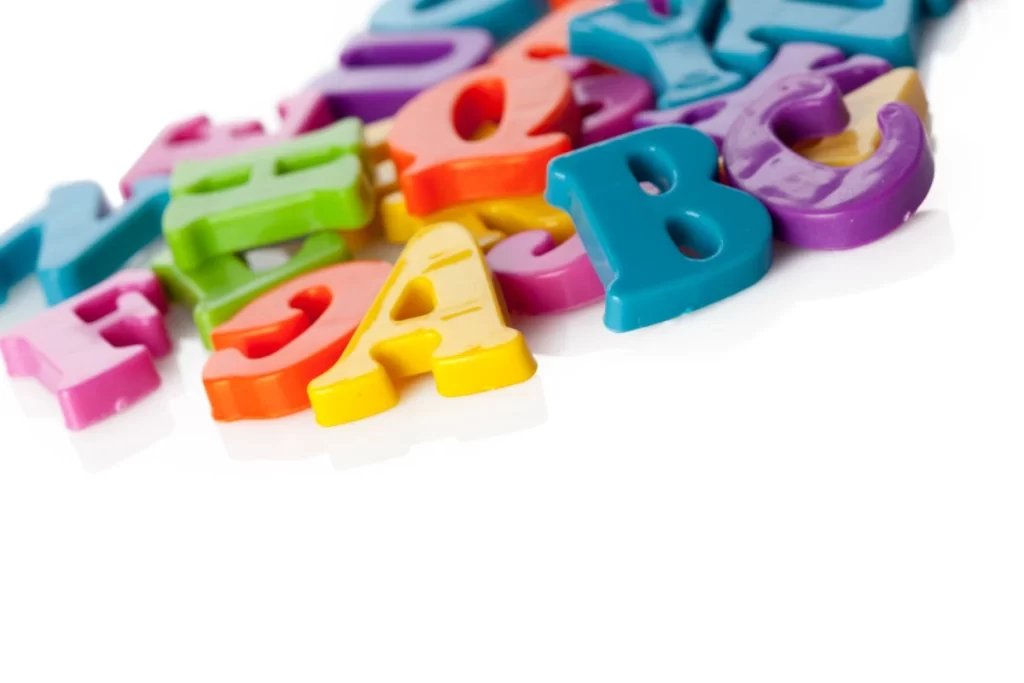Dysgraphia Overview
Dysgraphia is a learning difficulty that impacts writing and fine motor skills. This challenge disrupts various elements of the writing process and expression, including spelling, legibility, word spacing and sizing.
The two primary types of dysgraphia are:
- Developmental dysgraphia – emerging during a child’s initial stages of writing acquisition
- Acquired dysgraphia – emerging after a head or brain injury
Children with dysgraphia often face challenges within school environments due to handwriting tasks and assignments, which can impact their emotional well-being. However, with the appropriate support, dysgraphia can be effectively managed, empowering individuals to feel confident in their abilities. At Leaf Complex Care, we are dedicated to providing tailored support and fostering an environment where each person’s unique strengths can thrive.
Learning Difficulties Related to Dysgraphia
Knowing the signs and symptoms of dysgraphia is vital for distinguishing this challenge from other learning difficulties, such as dyslexia, dyscalculia and dyspraxia. It is also common for children and adults with dysgraphia to experience ADHD and Autism.
Some common signs of dysgraphia include:

- Inconsistent spacing of words
- Difficulties with handwriting
- Difficulties forming letters or numbers
- Difficulties with using lower or upper case letters
- Challenges with grammar and punctuation
- Inconsistent spelling
- Difficulties writing in a straight line
- Challenges with holding and controlling a writing tool
- Difficulties organising and articulating thoughts on paper
Symptoms of dysgraphia typically emerge during early school years, but displaying one symptom does not necessarily indicate dysgraphia.
In the following paragraphs, we will address more closely the differences and similarities between dysgraphia and other related learning difficulties.
Dysgraphia and Dyslexia
Dyslexia and dysgraphia are distinct learning difficulties that often coexist and share common symptoms. While both difficulties involve challenges in language processing, dyslexia primarily impacts reading skills, whereas dysgraphia predominantly affects handwriting and written expression.
Individuals with dyslexia commonly face challenges in distinguishing letters and words during reading tasks. Common dyslexia signs are manifested as difficulties with decoding, word recognition, and comprehension.
On the other hand, dysgraphia is characterised by writing difficulties, particularly when using a pen or pencil. However, individuals with dysgraphia often display improved abilities when utilising a keyboard or other alternative methods of writing.
Identifying the unique characteristics of dyslexia and dysgraphia is crucial, enabling healthcare professionals to provide targeted interventions and support. Early differentiation empowers individuals to receive the appropriate treatment, unlocking their potential for success.
Dysgraphia and ADHD
Dysgraphia and ADHD share some similarities. While there are overlapping signs, there are also distinct challenges that set dysgraphia and ADHD apart.
Some common signs include difficulty with focus, organisation, time management, and following directions. These shared characteristics can initially make it challenging to differentiate between dysgraphia and ADHD.
However, several key differences exist that help define each learning difficulty:
- Dysgraphia primarily affects writing skills, while challenges with attention, impulsivity, and hyperactivity characterise ADHD
- Handwriting difficulties are specific to dysgraphia, whereas ADHD typically does not directly impact an individual’s handwriting
- Not all individuals with ADHD experience difficulties with spelling, whereas spelling challenges are often present in dysgraphia, especially in children diagnosed with dyspraxia
- Dysgraphia is associated with motor skill challenges, such as fine motor coordination, whereas ADHD is more closely linked to executive functioning difficulties, including planning and organising abilities
It is important to recognise that each individual’s experience can vary. The impact and severity of symptoms can differ significantly from person to person. Therefore, obtaining an accurate diagnosis and early intervention is crucial to developing tailored treatment plans that address the specific needs of individuals.
Dysgraphia and Oral/Written Language Disorder
Dysgraphia, in some cases, can occur with oral and written language disorder. While dysgraphia and oral/written language disorder share some similarities, they involve different language processing areas.
Children with oral/written language disorders may show the same writing challenges as children with dysgraphia. However, other difficulties that individuals with an oral/written language disorder experience include the following:
- Expressing themselves verbally or in writing
- Making sense of syntax and sentence semantics
- Pronouncing complex words
- Difficulty with other components of reading, such as decoding, spelling and comprehension
It’s important to note that an accurate diagnosis and evaluation by professionals are crucial to differentiate between dysgraphia and oral/written language disorder and provide appropriate support strategies tailored to the individual’s needs.
Is Dysgraphia Neurodivergent?
Dysgraphia is a form of neurodivergence, which encompasses a range of neurological differences such as dyslexia, dyscalculia, ADHD, and Autism Spectrum Disorder. It is more prevalent in children assigned male at birth than in those assigned female at birth. Estimates suggest that 5% to 20% of individuals may have dysgraphia, potentially even higher due to frequent underdiagnosis or misdiagnosis. Recognising dysgraphia as a neurodivergent difference fosters acceptance and inclusivity, acknowledging the unique strengths and perspectives of individuals with this learning difficulty. It also emphasises the need for support, accommodations, and understanding within educational and social contexts. Employing strategies and providing support can help individuals with dysgraphia overcome the challenges they encounter in written expression.
Importance of Accurate Diagnosis
An accurate diagnosis of dysgraphia is important, especially when considering the impact it can have on individuals’ learning and development. Handwriting plays a significant role in memory retention, organisation, and information processing within the brain. Therefore, diagnosing dysgraphia as early as possible is essential. It allows for timely intervention and support, ensuring that individuals receive the necessary tools, strategies, and support learning to overcome their writing challenges.
A comprehensive and accurate diagnosis of dysgraphia is typically achieved through a team assessment involving various specialists:
- Occupational therapists
- Physical therapists
- Special education teachers
- Educational psychologists
- Speech therapists
- Neuropsychologists

These professionals collaborate to gather objective information and provide a comprehensive understanding of the individual’s abilities and needs. The assessment process includes tests that evaluate both writing and fine-motor skills.
To make an accurate diagnosis, the team relies on a range of tools and resources, such as:
- School reports
- Psychoeducational measures
- Review of the individual’s developmental
- Family medical history
This approach helps rule out other learning difficulties that may affect writing abilities.
Emotional and Social Impact
The challenges faced by individuals with dysgraphia go beyond the physical act of writing, impacting their self-esteem, social interactions, and overall well-being in the long term.
The slower pace of writing experienced by children with dysgraphia can impact their ability to accurately convey their ideas in written form. As a result, they may face challenges with effectively communicating their thoughts, leading to negative feelings and overall performance difficulties at school.
Recognising the individual nature of dysgraphia, the management of this learning difficulty requires a personalised approach at home and school to overcome the challenges. By tailoring sessions to each child’s unique needs, a child can be empowered to navigate their writing challenges and foster academic success.
The social impact of dysgraphia is equally significant. Individuals with dysgraphia may find it challenging to keep up with others during social interactions. The need for extra time, assistance, or accommodations can create negative feelings. In group activities or collaborative projects, individuals with dysgraphia may hesitate to contribute due to their challenges with written communication. These experiences can result in social withdrawal, anxiety, and a sense of disconnection from others.
At Leaf Complex Care, we understand the complex nature of dysgraphia and the impact it has on an individual’s self-esteem. Our support workers are committed to providing personalised management strategies to empower individuals with dysgraphia so they can overcome writing challenges and unlock their full potential in social and personal pursuits.
Promoting Awareness and Support
Promoting awareness and understanding about dysgraphia is essential to create a supportive environment that recognises and addresses the unique needs of those with this learning difficulty. By fostering a deeper understanding we can combat misconceptions and stigmas associated with dysgraphia, promoting acceptance and inclusivity.
Awareness and supportive environments start within the family home and continue in school and university. Having a positive learning environment at school impacts a child’s learning goals. Therefore, parents, educators and healthcare professionals must provide the necessary assistance, accommodations, and guidance that can make a significant difference in the lives of those children and students with dysgraphia. Offering individualised learning strategies and providing opportunities for creative expression beyond traditional writing tasks can also help children and students with dysgraphia discover and nurture their talents and interests.
Businesses also need to create supportive and inclusive working environments for individuals with dysgraphia, where individuals are valued for their unique strengths and contributions. Various methods can help individuals manage this learning difficulty in the workplace, such as allowing more time for assignments, providing group support, and using a laptop to write.
Learning Difficulties Support with Leaf Complex Care
At Leaf Complex Care, we create and maintain a supportive and humane environment that builds confidence and promotes the growth of people with learning disabilities and difficulties such as dysgraphia.
Our well-trained and dedicated support workers work closely with the people we serve while providing compassionate support services. We personalise the support based on the needs of the individual, ensuring they receive support that fosters a meaningful life.
You can find our offices located in Bristol, Exeter, South East, the Midlands and Somerset. For more information about our tailored support services, contact us now.

